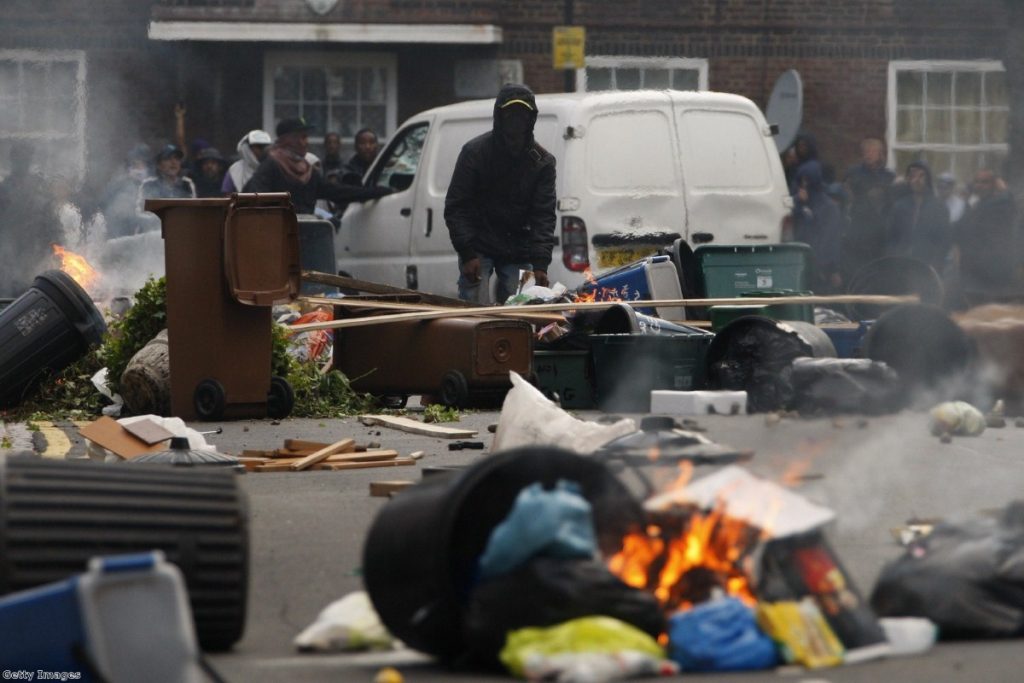Officials to target troublemaker families
By Alex Stevenson Follow @alex__stevenson
A team of Whitehall-controlled officials are to find and then intervene in the lives of Britain's most troubled families, David Cameron has announced.
The plan will attempt to get family caseworkers 'through the doors' of the country's 120,000 most dysfunctional families to reduce their cost to the state – estimated last year at £9 billion, or £75,000 per family.
'Troubleshooters' will be appointed by local councils given responsibility for ensuring that action is taken, as part of a concerted national push unveiled by Mr Cameron today.


The coalition will spend £448 million between now and May 2015. Councils will be given 40% of the funding if they provide the remaining 60%.
"The message is this: 'we are not coming in to rescue you – you need to rescue yourselves, but we will support you every step of the way'," the prime minister said in a speech to an audience of charities and voluntary organisations in the West Midlands.
"For many of the most troubled families, there will be a family worker – a single point of contact for the first time for particular families, working out what the family needs, where the waste is and lining up the right services at the right time.
"When the front door opens and the worker goes in, they will see the family as a whole and get a plan of action together, agreed with the family."
A 'troubled families unit' headed by Louise Casey is be set up in the Department for Communities and Local Government which will coordinate the work taking place across councils.
Their first task will be 'confirming the number and location of troubled families', a task which Mr Cameron said would be completed by the end of next February.
"Today we are announcing, council by council, our estimate from data, mapping where these families are," the prime minister added.
He said there were an estimated 4,500 problem families in Birmingham and 2,500 in Manchester.
"These things don't always cost a lot but they make all the difference," Mr Cameron added.
"And they will get on top of the services, sorting out – and sometimes fending off – the 28 or more different state services that come calling at the door.
"Not a string of well-meaning, disconnected officials who end up treating the symptoms and not the causes. But a clear hard-headed recognition of how the family is going wrong – and what the family members themselves can do to take responsibility."
The Local Government Association broadly welcomed the moves, but warned that extra funding would not be wasted on "endless bureaucracy and form-filling".
"We are pleased government has recognised the need for all departments to work much more closely with councils at a local level," LGA chairman Sir Merrick Cockell said.
"This is vital to help us overcome historic hurdles which have stood in the way of the huge savings and greater local accountability this coordinated approach can deliver."
The moves to tackle Britain's troublemaking families will be seen as a key part of the government's response to the riots and looting seen in England's biggest cities this August.
Yesterday Labour leader Ed Miliband told the Reading the Riots conference that he wanted to see more from ministers than just an approach dealing with families.
"There is another answer which says that this should be an easy problem for governments to fix," he said.
"It recommends another programme or a new raft of initiatives – targeted at gangs or families who need help."
Mr Miliband said he felt there was a place for measures like family intervention partnerships, but added: "When you hear people say those things alone are the answer, I believe we need a bigger response.
"More comprehensive, and yes more complex.
"I reject the arguments of those who say opportunity doesn't matter. And I believe it will take a bigger change in Britain to create the opportunities which our communities need."












